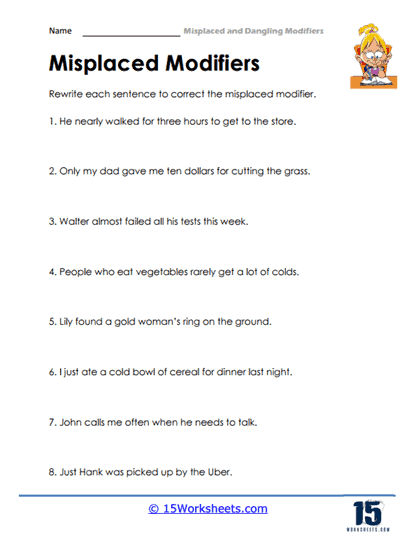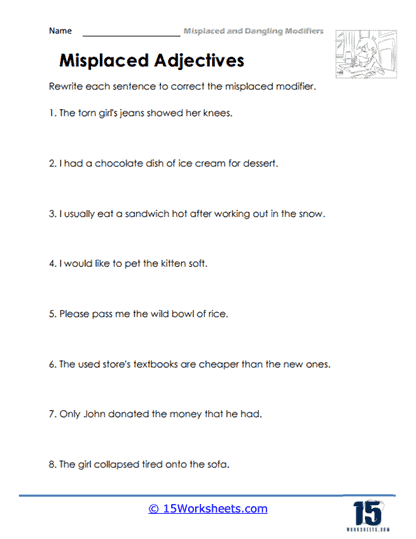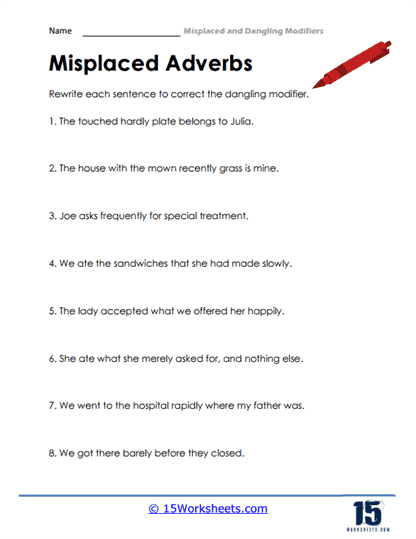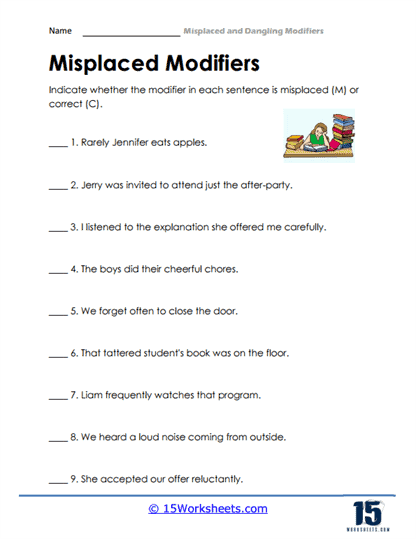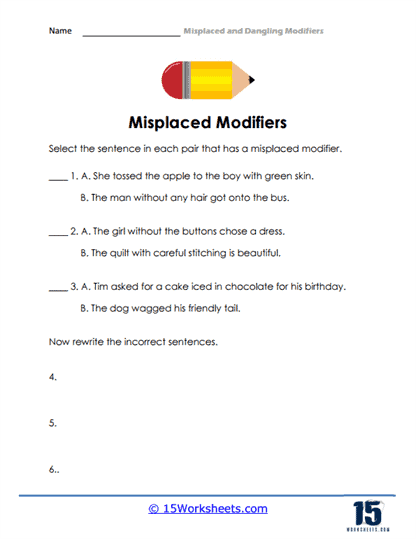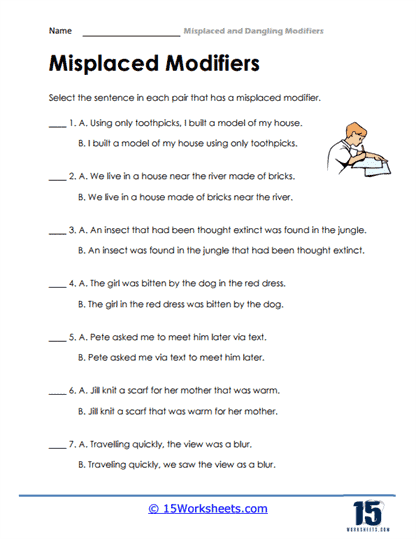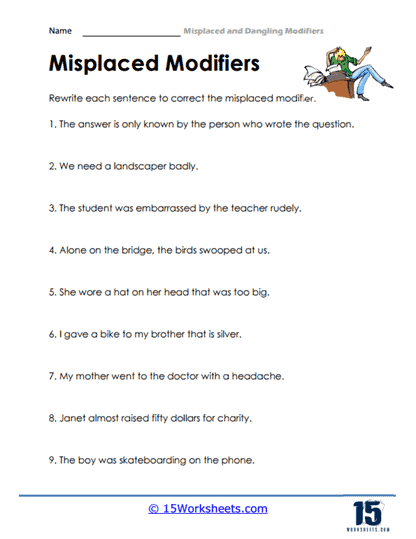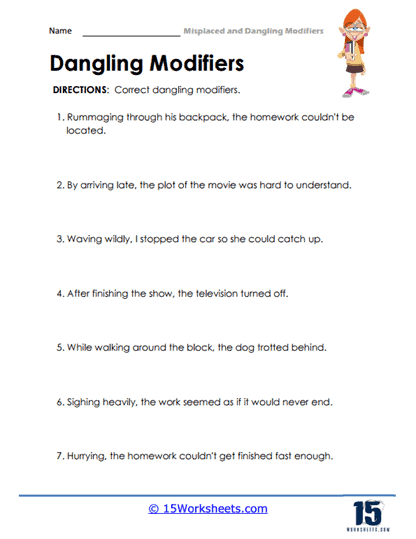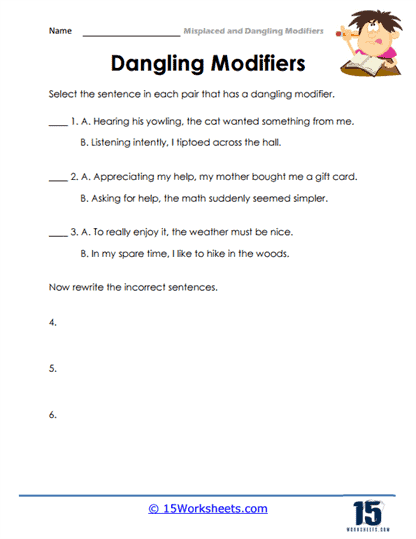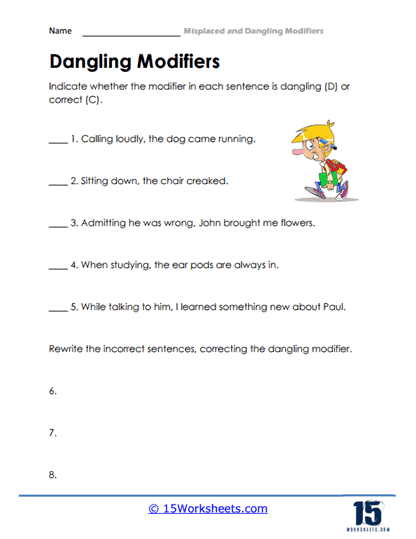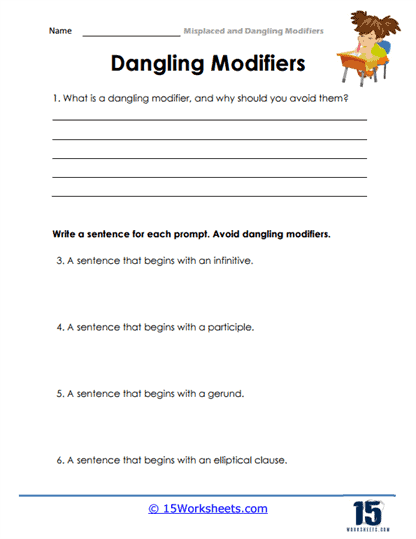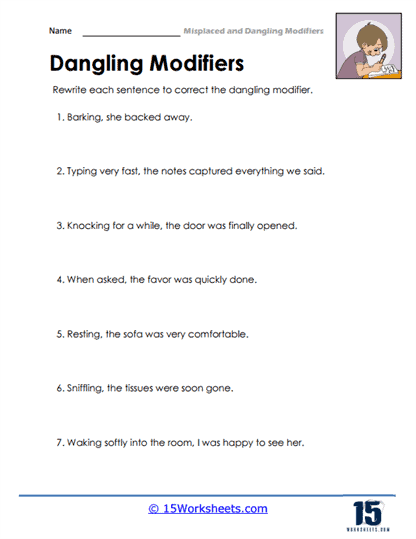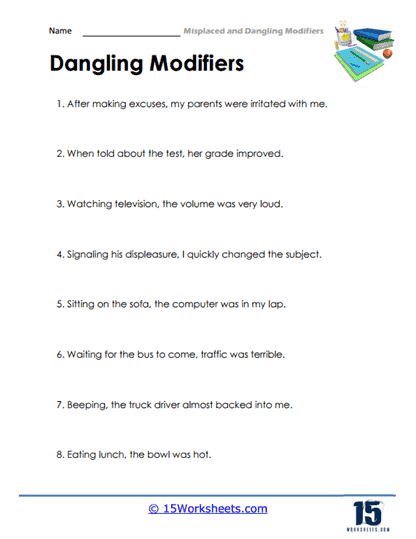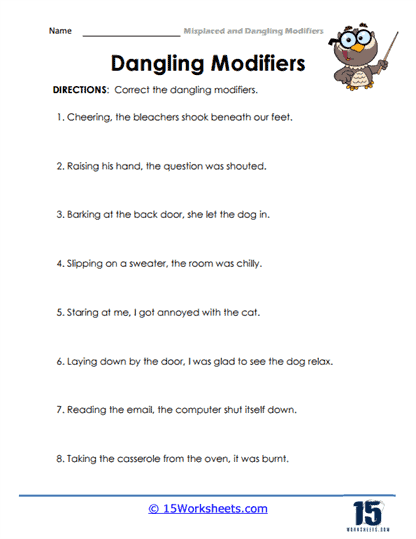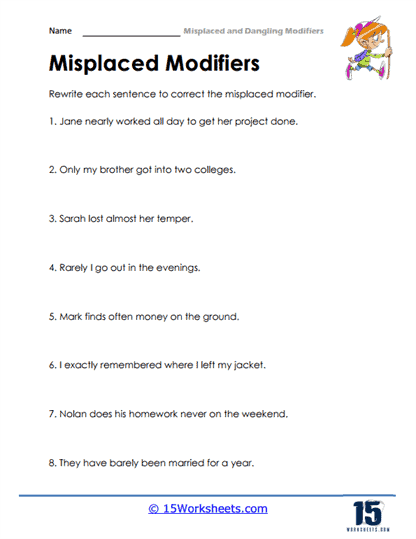Dangling Modifiers Worksheets
All About These 15 Worksheets
This series of worksheets is designed to help students identify, understand, and correct dangling modifiers. Each worksheet provides students with guided exercises and practical strategies to enhance their understanding and application of proper modifier usage.
This series caters to students across different grade levels, offering a range of worksheets that cover various aspects of dangling modifiers. Through these worksheets, students will:
- Develop an awareness of how modifiers should be correctly placed to avoid confusion or ambiguity;
- Learn strategies for recognizing sentences where modifiers are improperly placed, resulting in unclear or illogical meanings;
- Identify instances where a modifier is wrongly linked to a noun or pronoun and evaluate the resulting confusion or misinterpretation;
- Rewrite sentences, repositioning the modifiers and establishing proper connections between the modifier and the intended subject;
- And identify and correct any issues related to dangling modifiers, ensuring their writing is precise and effectively communicates their intended message.
This series of worksheets serves as a valuable resource for teachers seeking to enhance their students’ writing skills and address the challenge of dangling modifiers. By engaging with these worksheets, students develop the abilities to recognize and correct dangling modifiers, improve sentence clarity, and enhance the overall effectiveness of their writing.
What are Dangling and Misplaced Modifiers?
A phrase, word, or sentence that alters, explains, or characterizes another phrase, word, or clause is known as a modifier.
Modifiers may be misused by authors at times, creating weird and inadvertently hilarious lines. Dangling modifiers and misplaced modifiers are the two main categories of modifier mistakes. Another sort of modifier mistake is referred to as a “squinting error,” in which the author “squints” at their text in an effort to make a mistake work. Avoid squinting!
Readers can no longer read easily if one of these mistakes happens. Instead, people become stuck when attempting to decipher what the author intended to express. Here, readers may need to “squint” as well to understand what the author is trying to convey. A writer should constantly aim to convey their ideas properly and refrain from confusing the reader with unusual sentence structures.
How to Find a Dangling Modifier
To identify a dangling modifier fast, do the following three steps:
1. Check for a -ing modifier or similar modifying word at the start of your sentence:
Painting for four hours at night, the living room was finally completed by Jackie.
2. Highlight the first term that comes after it:
Painting for four hours at night, the living room was finally completed by Jackie.
3. Verify that the noun and modifier make sense when combined. If they don’t, you most likely have an unresolved modifier. Rewrite the phrase once the hanging modifier has been found.
Painting for four hours at night, Jackie finally finished the living room.
Misplaced Modifiers
When a modifier is positioned very far from the phrase or words it modifies, it is said to be misplaced. Modifier placement issues make the phrase uncomfortable and perhaps inadvertently funny.
Incorrect: Dany wore a motorcycle helmet on his head that was too large.
Correct: Dany wore a motorcycle helmet that was too large on his head.
You’ll see that the wrong wording makes it sound like his head was excessively big. Naturally, the article alludes to the helmet rather than the wearer’s head. The author’s meaning is made clearer in the revised form of the statement.
Incorrect: My parents bought a puppy for my cousin they call Rocky.
Correct: My parents bought a puppy they call Rocky for my cousin.
The cousin’s name seems to be Rocky in the wrong statement. This is due to the modifier’s distance from the phrase it modifies—puppy—being too great.
Dangling Modifiers
A phrase, word, or clause that characterizes something that has been left out of the statement is known as a hanging modifier. The modifier is also said to dangle if the phrase, word, or sentence cannot change anything.
Incorrect: Riding in a Ferrari, the world passed by rapidly.
Correct: As we were riding in the Ferrari, the world passed by rapidly.
Riding in a Ferrari is hanging in the erroneous phrase. Who is seated in the sports automobile is left up to the reader’s speculation.
The author must divulge all important information to the reader!
Incorrect: Driving home during the night, the trees looked like creepy ghosts.
Correct: As I was driving home during the night, the trees looked like creepy ghosts.
Correct: The trees looked like creepy ghosts as I was driving home at night.
The word “dangling” describes the act of going home at night. Who makes their way home at night? The writer. It should be noted that
the dangling modifier might be fixed in two distinct methods.

